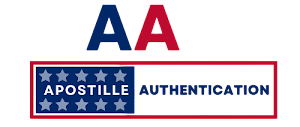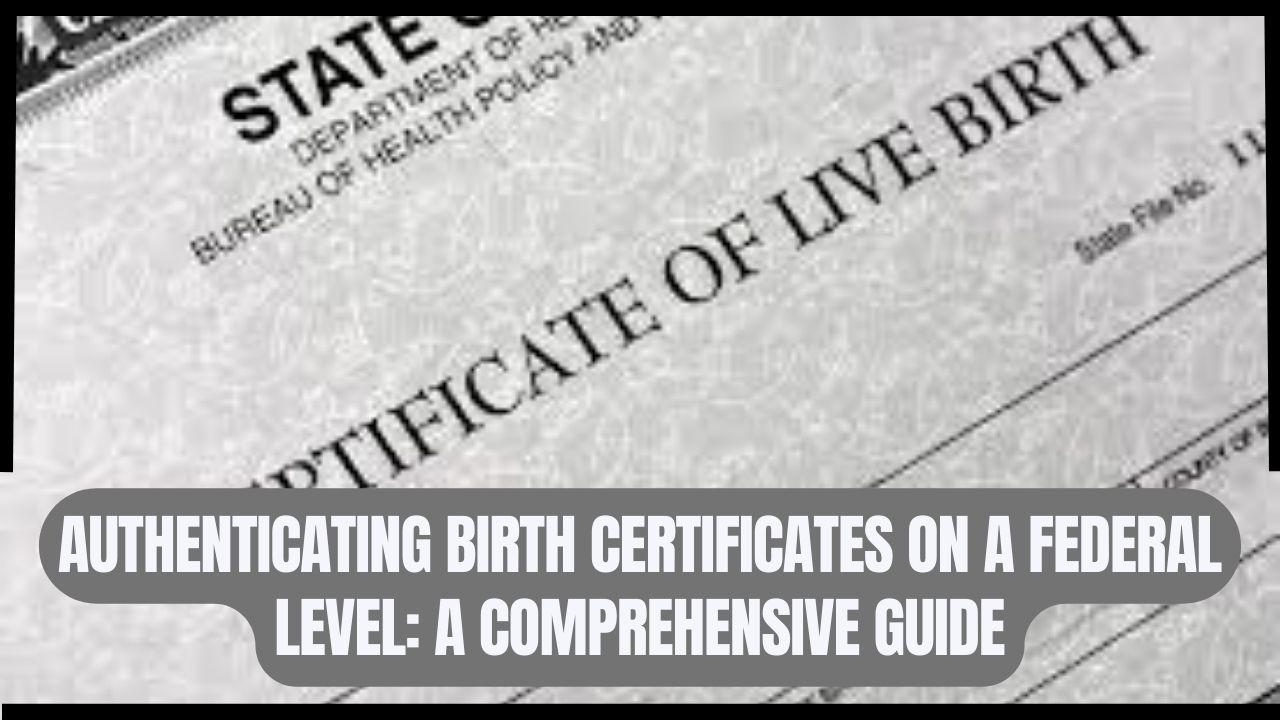In today’s interconnected world, having official documents authenticated for federal and international purposes has become increasingly important. Birth certificates, in particular, are crucial documents that may need to be authenticated for various reasons, such as immigration, adoption, or legal proceedings. This comprehensive guide will take you through the process of authenticating your birth certificate on a federal level, ensuring that your document meets the necessary requirements for official recognition and acceptance.
Key Takeaways
- Apostille certification is an internationally recognized form of authentication that verifies the origin and validity of public documents, including birth certificates.
- Apostille certification for birth certificates is often required for various purposes, such as immigration, intercountry adoption, and international use, especially when dealing with countries that are members of the Hague Apostille Convention.
- To obtain an apostille for a birth certificate, individuals typically need to request a certified copy of the birth certificate from the appropriate government agency and then submit it to the designated apostille authority in their state, along with the required application form and fees.
- Alternative authentication methods for birth certificates, such as notarization and certified copies or authentication by the U.S. Department of State, may be acceptable or required in certain situations, depending on the specific requirements of the receiving authority or institution.
- It is crucial to confirm the authentication requirements with the relevant authorities or institutions to ensure that the birth certificate meets their specific criteria and is properly authenticated for the intended purpose.
- The process of obtaining an apostille or alternative authentication for a birth certificate may involve varying fees and procedures depending on the state or jurisdiction, so it is advisable to check with local authorities for specific guidelines.
- Failure to provide a properly authenticated birth certificate when required can result in delays or even rejection of applications or requests related to immigration, adoption, or international use of the document.
- By understanding the authentication process and following the proper channels, individuals can ensure that their birth certificates are recognized as valid and legitimate documents on a federal level, facilitating various official processes and requirements.
To understand the broader implications, it’s essential to explore what happens when you authenticate your birth certificate and how it impacts its validity and use internationally.
What Is an Apostille and Why Is It Necessary?
An apostille is a form of authentication issued by designated authorities to certify the origin of a public document. It serves as a means of verifying the authenticity of the document and the validity of the signatures and seals it bears. The apostille process is governed by the Hague Apostille Convention, an international treaty that simplifies the legalization of public documents among its member countries.
When Is Apostille Certification Required for Birth Certificates?
Apostille certification for birth certificates is often required in the following situations:
- Immigration and visa applications: When applying for visas or permanent residency in another country, apostilled birth certificates may be requested as proof of identity and citizenship.
- Intercountry adoption: In the case of international adoptions, apostilled birth certificates are typically required to establish the legal relationship between the adoptive parents and the child.
- International use: If you plan to use your birth certificate for official purposes in a country that is a member of the Hague Apostille Convention, an apostille will likely be necessary.
Failure to provide an apostilled birth certificate when required can result in delays or even rejection of your application or request.
For those new to this process, understanding what an apostille certificate is and how it functions is crucial for grasping why federal-level authentication is necessary for certain documents.
How to Obtain an Apostille for Birth Certificates:
The process of obtaining an apostille for your birth certificate typically involves the following steps:
- Request a certified copy of your birth certificate from the appropriate state or local government agency responsible for maintaining birth records.
- Locate the designated apostille agency in your state. This is often the Secretary of State’s office or a similar authority.
- Submit the required documents, which may include the certified copy of your birth certificate, a completed application form, and the applicable fees.
- Once the apostille authority verifies the authenticity of the birth certificate, they will affix an apostille certificate or stamp to the document.
It’s important to note that the requirements and procedures for obtaining an apostille may vary slightly from state to state, so it’s advisable to check with your local authorities for specific guidelines.
If you’re looking for a detailed process, check out our guide on how to obtain an apostille for your birth certificate, which outlines each step required to ensure your document is recognized abroad.
Alternative Authentication Methods for Birth Certificates:
In certain cases, alternative authentication methods may be acceptable or required instead of an apostille. These include:
- Notarization and certified copies: Some institutions or agencies may accept birth certificates that have been notarized by a notary public and certified as true copies of the original document.
- Authentication by the U.S. Department of State: For countries that are not members of the Hague Apostille Convention, you may need to have your birth certificate authenticated by the U.S. Department of State’s Authentication Office.
It’s crucial to confirm the authentication requirements with the relevant authorities or institutions to ensure that your birth certificate meets their specific criteria.
Conclusion:
Authenticating birth certificates on a federal level is a crucial step for various official purposes, including immigration, adoption, and international use. By understanding the process of obtaining an apostille or alternative authentication methods, you can ensure that your birth certificate meets the necessary requirements and is recognized as a valid and legitimate document. Remember to follow the proper channels, provide the required documentation, and confirm the specific authentication needs with the relevant authorities to avoid any delays or complications.
Frequently Asked Questions:
Q1: How long is an apostille valid for a birth certificate?
A1: The validity period of an apostille varies depending on the issuing authority and the purpose for which the birth certificate is being used. In general, apostilles do not have an expiration date, but the underlying document may have a validity period specified by the issuing agency.
Q2: Can I get an apostille for an older or amended birth certificate?
A2: Yes, apostilles can be obtained for older birth certificates or those that have been amended or corrected, as long as the document is a certified copy issued by the appropriate government agency.
Q3: Is an apostille the same as a certified translation?
A3: No, an apostille and a certified translation are separate processes. An apostille authenticates the origin and validity of a document, while a certified translation provides an official translation of the document’s content into another language.
Q4: Can I request an apostille for my birth certificate online?
A4: Some states or apostille authorities may offer online services for requesting apostilles, but in most cases, you will need to submit the necessary documents and fees in person or by mail.
Q5: How much does it cost to get an apostille for a birth certificate?
A5: The cost of obtaining an apostille for a birth certificate can vary based on your state or jurisdiction. Typical fees range from $5 to $20, but additional costs may apply for certified copies of the birth certificate or expedited processing.

